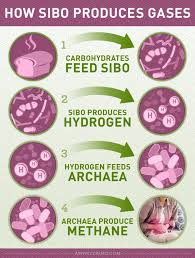Impact on Digestion and Nutrient Absorption
The small intestine is responsible for nutrient absorption through villi and microvilli — tiny, finger-like projections that maximise surface area. These microvilli produce brush border enzymes, which break down starches into sugars and proteins into amino acids for absorption.
In SIBO, bacterial overgrowth damages the villi and microvilli, reducing digestive efficiency and leading to nutrient deficiencies, chronic inflammation, and symptoms such as bloating, gas, and fatigue. Early detection and treatment are essential to restore gut function and overall health.
Conditions Commonly Associated with SIBO
SIBO can affect multiple systems in the body due to its impact on digestion, nutrient absorption, and inflammation. Commonly associated conditions include:
- Fibromyalgia air jordan 11 cherry holiday 2022 and Chronic Fatigue Syndrome (often linked to diarrhoea-dominant SIBO)
- Chronic constipation (associated with methane-dominant SIBO)
- Irritable Bowel Syndrome (IBS)
- Inflammatory Bowel Disease (Crohn’s disease and ulcerative colitis)
- Acid reflux and GERD
- Coeliac disease
- Interstitial cystitis
- Restless leg syndrome
- Acne Rosacea
- Diabetes and insulin resistance
- Hypothyroidism
- Scleroderma
- Chronic prostatitis
- Non-Alcoholic Steatohepatitis (NASH) and liver cirrhosis
- Diverticulitis
Persistent digestive symptoms, fatigue, or nutrient deficiencies may indicate an underlying gut imbalance. Microbiome testing and a gut health assessment can help identify root causes and guide effective treatment.
SIBO and Acne Rosacea
Q: Can my skin condition, diagnosed as Rosacea, be linked to SIBO?
A: Yes, SIBO can contribute to Rosacea. Acne Rosacea is a chronic inflammatory skin condition affecting the central face and eyes, often causing redness, flushing, and in some cases papules and pustules. It can significantly impact self-confidence and quality of life.
Studies, including Parodi et al. (2008), have shown that treating SIBO in patients with Rosacea can lead to significant improvement in both skin and gut symptoms. Gastrointestinal disorders—such as bloating, constipation, diarrhoea, acid reflux, Crohn’s disease, celiac disease, low stomach acid, and Helicobacter pylori infection—are commonly observed in patients with Rosacea.
The connection is believed to involve bacterial overgrowth leading to excess gut inflammation, increased intestinal permeability, and compromised nutrient absorption, which can all exacerbate inflammatory skin conditions.

